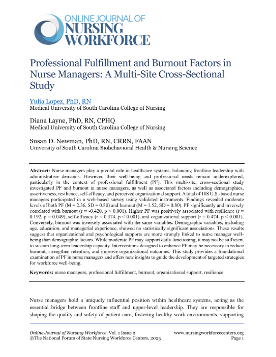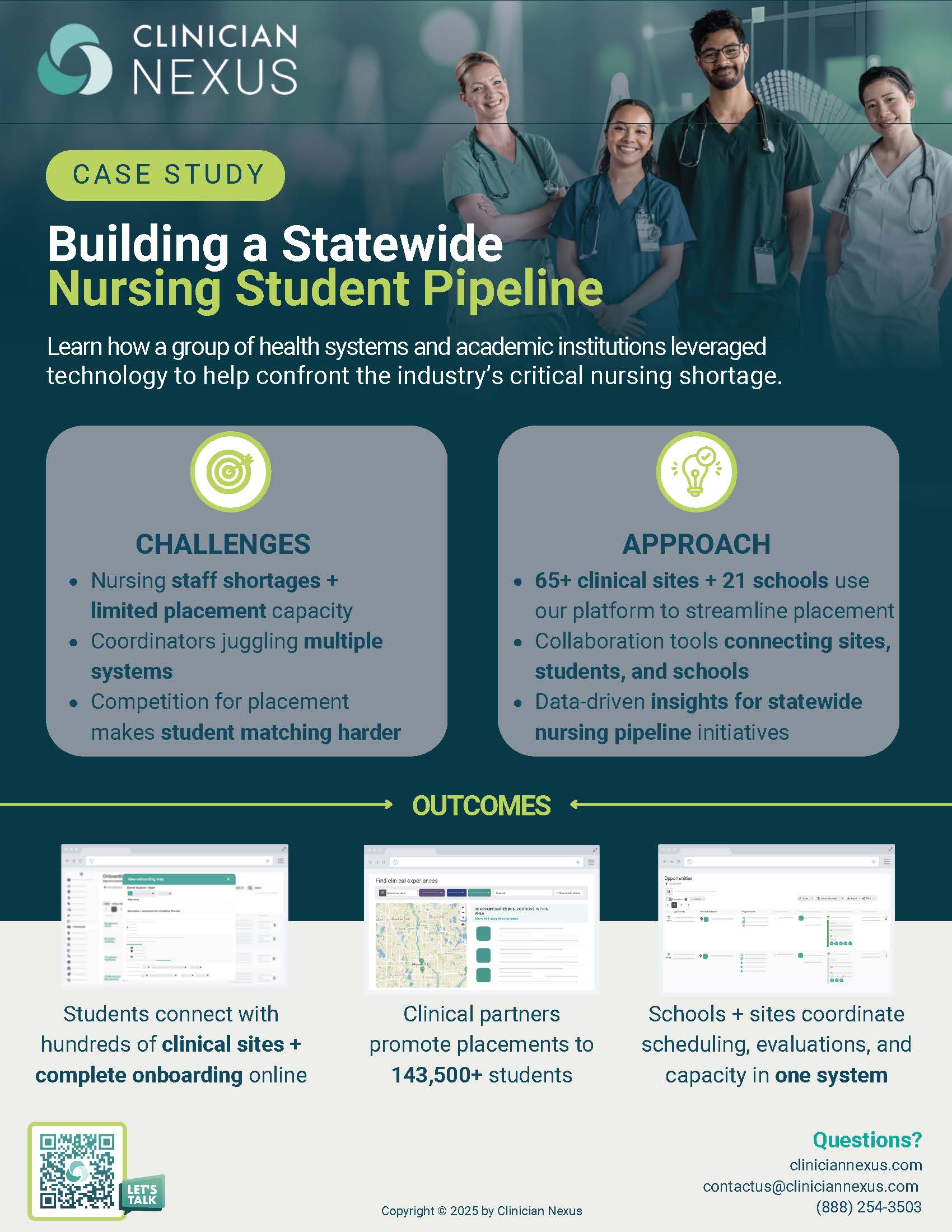Professional Fulfillment and Burnout Factors in Nurse Managers: A Multi-Site Cross-Sectional Study
Keywords:
nurse managers, professional fulfillment, burnout, organizational support, resilienceAbstract
Nurse managers play a pivotal role in healthcare systems, balancing frontline leadership with administrative demands. However, their well-being and professional needs remain underexplored, particularly in the context of professional fulfillment (PF). This multi-site, cross-sectional study investigated PF and burnout in nurse managers, as well as associated factors including demographics, assertiveness, resilience, self-efficacy, and perceived organizational support. A total of 108 U.S.-based nurse managers participated in a web-based survey using validated instruments. Findings revealed moderate levels of both PF (M = 2.36, SD = 0.80) and burnout (M = 1.52, SD = 0.80). PF significantly and inversely correlated with burnout (r = -0.420, p < 0.001). Higher PF was positively associated with resilience (r = 0.192, p = 0.049), self-efficacy (r = 0.374, p < 0.001), and organizational support (r = 0.474, p < 0.001). Conversely, burnout was inversely associated with the same variables. Demographic variables, including age, education, and managerial experience, showed no statistically significant associations. These results suggest that organizational and psychological supports are more strongly linked to nurse manager well-being than demographic factors. While moderate PF may support daily functioning, it may not be sufficient to sustain long-term leadership capacity. Interventions designed to enhance PF may be necessary to reduce burnout, strengthen retention, and improve organizational outcomes. This study provides a foundational examination of PF in nurse managers and offers new insights to guide the development of targeted strategies for workforce well-being.








